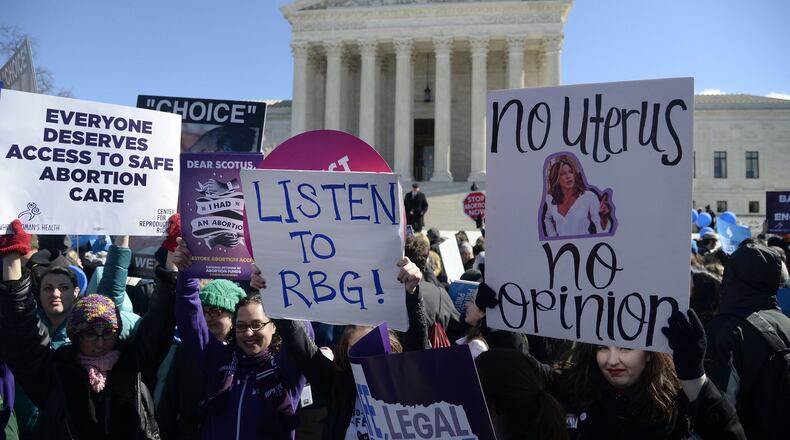The so-called “heartbeat” bill that would effectively ban abortion in Georgia about six weeks into pregnancy, before most women even know they are pregnant, is all about power — not health.
The extremist groups and politicians behind HB 481 have made no secret of the fact that their core objective is to ban all abortion, including in cases of rape and incest. They are wielding political power and financial clout to prop up support for their unpopular agenda and reassert control over women’s bodies.
This amounts to a direct attack on Roe v. Wade, as state after state enacts an ever-increasing number of restrictions on a woman’s right to have access to safe and legal abortion. These proposed laws are unconstitutional and threaten women’s health, economic and emotional well-being and pursuit of happiness.
First trimester abortion restrictions, waiting periods, informed consent requirements, bans on public funding, insurance prohibitions, unnecessary clinic regulations — these laws are not designed to protect women. Instead, they are designed to deter them from accessing abortion.
Polling conducted for NARAL shows that nearly 7 in 10 Georgians believe abortion should be legal and that government should not prevent a woman from making the decision whether or not to have an abortion for herself. But this fundamental power over the most personal matters regarding women’s health is in danger of being taken away.
Denying public opinion to advance a narrow political agenda is pretty cynical, but in this case, that’s just the beginning. Backers of the bill concede that the fetal heartbeat measure’s constitutionality is sure to be questioned. In fact, that’s the whole point. Sponsors deliberately loaded the bill with arguments designed to attract a Supreme Court challenge to abortion rights, leading, they hope, to a reversal of Roe.
For example, the bill would allow Georgians to claim an embryo as a dependent on their taxes and would also count the unborn in the national census. Anti-abortion activists realize that the Supreme Court is sure to be drawn to so many tempting legal theories.
But this highly political push for a Supreme Court win has real-world consequences here in Georgia. Georgia already ranks as the worst state for maternal mortality in the country. The state Department of Health found that 60% of pregnancy-related deaths were preventable, yet lawmakers seem intent on making access to lifesaving medical care even less available, more expensive, and lower quality.
This bill will further inflame what’s already a crisis in access to quality medical care for women. Of Georgia’s 159 counties, 79 don’t have a single OB-GYN. What doctor from out of state is going to come to practice medicine in a place that threatens to throw them into jail for providing abortion?
Speaking on CNN, State Sen. Jen Jordan (D-Atlanta) said, “let me be clear: Women are going to die because of this law because they cannot get appropriate health care from OB-GYNs in this state.”
Up to a dozen states have passed or proposed legislation that restricts access to abortion, with an unofficial race to repeal Roe underway. This is a race Georgia can well afford to skip out on.
Gov. Brian Kemp should take a step outside of his usual box and announce he won’t sign HB 481. If it’s too hard for him to credit medical, scientific, or humanitarian reasons, he can proclaim his position as a triumph of state’s rights conservatism. He must surely resent his state’s legislative process being turned inside out over a future battle in the Supreme Court.
Georgia lawmakers should focus on health policy that protects women and girls, and not on extremist policies that make national headlines. Let’s say good riddance to bad policy and stop the junk science heartbeat bill from becoming law.
Allison Stouffer Kopp is president of the Georgia chapter of the National Organization for Women (NOW) and Toni Van Pelt is national president of NOW.
About the Author
Keep Reading
The Latest
Featured



